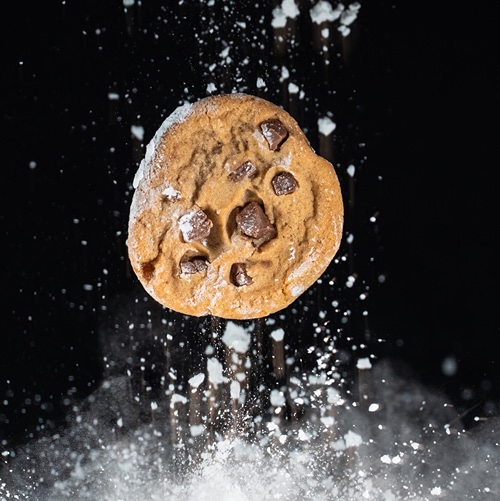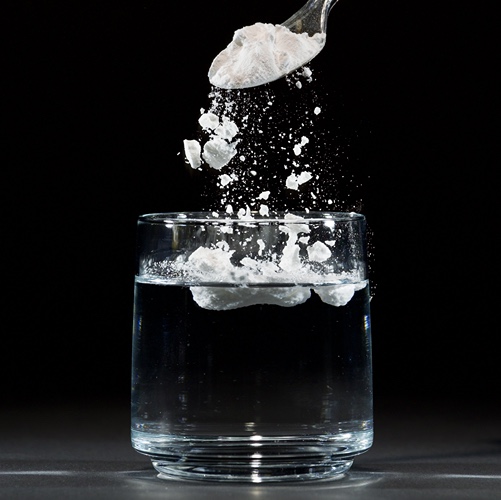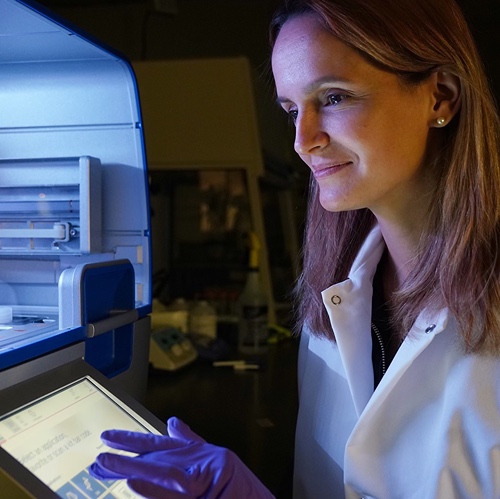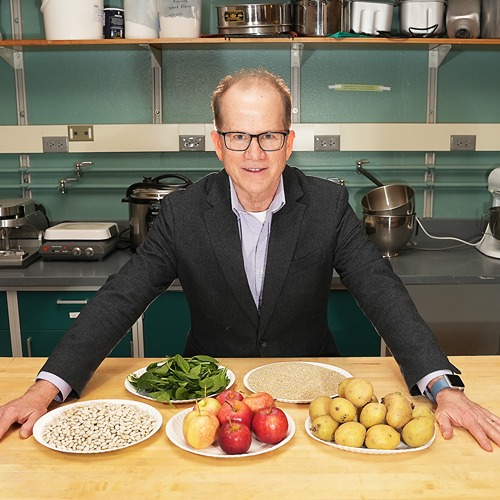Purdue researchers report sweet corn could make animal vaccines safer
WEST LAFAYETTE, Ind. - Animal vaccine manufacturers could benefit from the work of two Purdue University researchers who are testing biomaterial made from sweet corn to make vaccines safer.
Harm HogenEsch, a professor in the College of Veterinary Medicine, and Yuan Yao, an associate professor in the College of Agriculture, are developing biomaterial from a non-genetically modified variety of sweet corn to use as an adjuvant in animal vaccines. Adjuvants are substances that are added to vaccines to stimulate an immune response and to improve the performance of vaccines.
HogenEsch said commonly used adjuvants like oil emulsions and aluminum have a number of drawbacks.
"The conventionally used oil emulsions and aluminum are poorly biodegradable and can induce a long-lasting inflammatory response at the injection site. Especially for food animals, that's an issue," he said. "The corn-derived biomaterial being developed and tested at Purdue may address these issues in a sustainable way."
Yao said the adjuvant biomaterial research is being conducted on a naturally occurring variety of corn.
"The corn that we are using to generate the biomaterial has been planted for decades without being genetically modified," he said. "The base material from which the biomaterial is made is nano-size and quickly digestible like a starch. Our research with small animals shows that these specifically designed biomaterial particulates act as an adjuvant by stimulating the interactions with immune cells."
HogenEsch and Yao are looking to develop the corn-based adjuvant with industry partners.
"When we have talked with companies, the question comes up how it will work in large animals such as pigs, dogs or poultry," HogenEsch said. "We are looking to work with industry partners to do more extensive and expensive research to include more animals and further develop the technology."
Purdue Research Foundation Office of Technology Commercialization has applied for a provisional patent on HogenEsch and Yao's work. The research has been funded by the U.S. Department of Agriculture, the National Science Foundation, and Purdue University College of Agriculture's AgSEED funding. An article about the research was published in the peer-reviewed Journal of Controlled Release.
About Purdue Research Foundation Office of Technology Commercialization
The Purdue Research Foundation Office of Technology Commercialization operates one of the most comprehensive technology-transfer programs among leading research universities in the U.S. Services provided by this office support the economic development initiatives of Purdue University and benefit the university's academic activities. For more information on licensing a Purdue innovation, contact the Office of Technology Commercialization at innovation@prf.org.
Purdue Research Foundation contact: Steve Martin, 765-588-3342, sgmartin@prf.org
Sources: Harm HogenEsch, 765-496-3487, hogenesch@purdue.edu
Yuan Yao, 765-494-6317, yao1@purdue.edu






